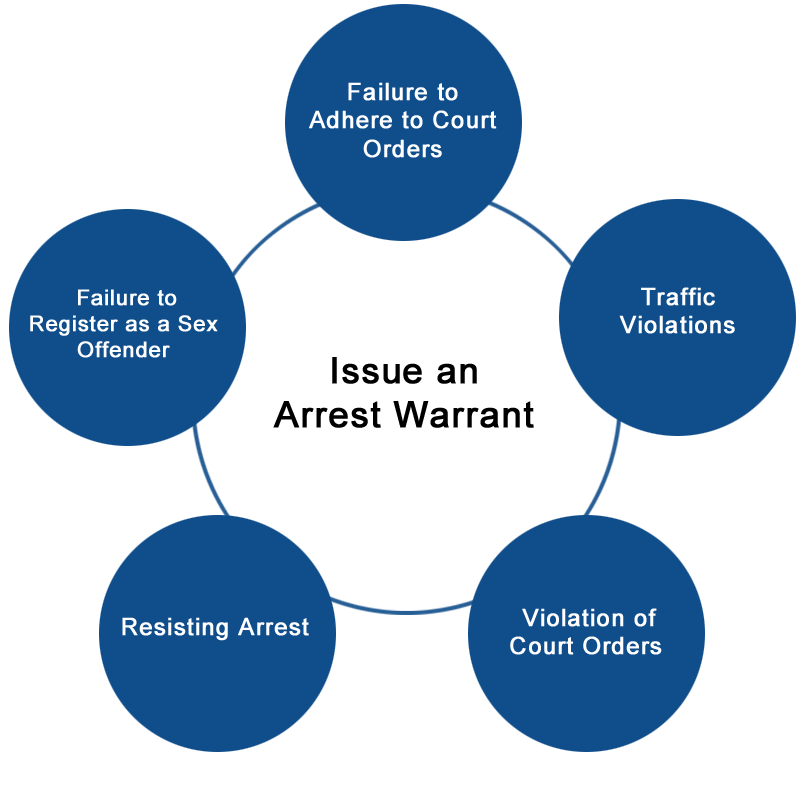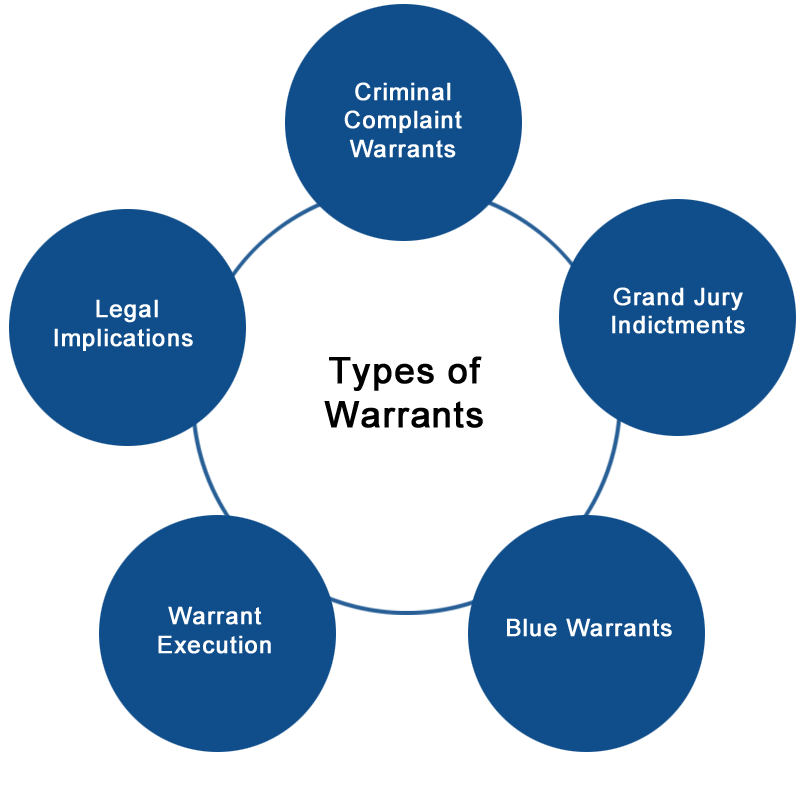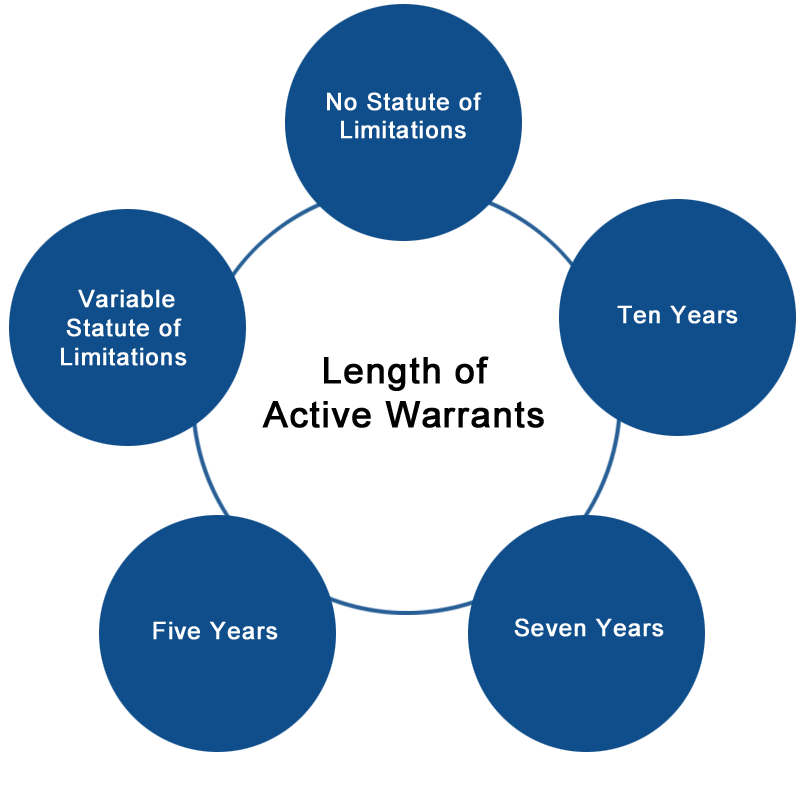Arrest Warrants, Bench Warrants and Blue Warrants in Texas

Before you can be arrested in the state of Texas, law enforcement officers must first generate a warrant. Issued by a magistrate or a judge, and supported by enough evidence to suggest probable cause, this legal document gives authorities the right to detain and arrest those who are suspected of crimes.
However, there are several different types of warrants, related to different types of crimes and circumstances, that you should be aware of.
Types of Warrants
The most common type of warrant is an arrest warrant. As the name implies, this is a document stating that law enforcement has gathered enough evidence against a suspect to suggest that they committed a crime. A warrant does not necessarily mean that the suspect is guilty, it simply authorizes law enforcement to arrest a suspect and bring them before a judge or a magistrate to face charges or set bail. After a certain period of time, if the suspect is not located, the warrant can be sent out via a law enforcement database to widen the search.
 Beyond suspected involvement in a crime, there are several reasons why law enforcement may issue an arrest warrant, including:
Beyond suspected involvement in a crime, there are several reasons why law enforcement may issue an arrest warrant, including:
- • Failure to adhere to a subpoena or summons ordering the individual to appear in court or a bail hearing.
- • Violations of traffic law.
- • Violation of court-ordered probation, parole, restraining order or other court order. This includes contempt of court or failure to pay fines.
- • Resisting arrest.
- • Failing to register as a sex offender when ordered by the court.
As mentioned, there are several different types of warrants, based on the severity of the crime for which the defendant is accused. For less serious violations such as a minor traffic violation, misdemeanor or missed court date, law enforcement may issue what is called a bench warrant. Those who have been named in a bench warrant may not necessarily have police actively pursuing them, but if they are pulled over or encounter an officer in the normal course of their duties, they may be placed under arrest.
At the far other end of the spectrum are felony warrants. Issued for the most serious crimes, these warrants are generally acted on with extreme urgency by law enforcement. Using any means at their disposal — surveillance, public records searches, interviewing known associates, and even offering a reward to the public for information – they will locate and place the suspect in custody as quickly as possible.
At the time of the arrest on a felony warrant, police need only knock and identify themselves as law enforcement to force entry into the suspect’s home. Law enforcement doesn’t even necessarily have to have the warrant in hand at the time of the arrest, as long as they can provide it as soon as possible.
 There are many other types of warrants as well, including:
There are many other types of warrants as well, including:
-
- • Criminal Complaint Warrants: This type of warrant comes about when a citizen makes a formal criminal complaint against another. The offended citizen must make a written statement outlining essential facts of the case, then present it under oath to a magistrate or a judge. The recipient of the criminal complaint warrant is then compelled to appear before the court as soon as possible, but is not formally under arrest.
- • Grand Jury Indictments: If a grand jury has determined that there is sufficient evidence to pursue a criminal trial against a defendant, the court or a clerk will issue a writ directing any peace officer in the State of Texas to arrest the accused.
- • Blue Warrants: These warrants are reserved for a person who is currently on parole. Getting its name from the blue jacket it’s typically served in, these warrants are typically issued when a parolee violates the terms of parole, be it carrying a weapon, missing a scheduled meeting with a parole officer or breaks the law. Depending on the severity of the violation, the parolee could have the terms of their parole altered, they may be required to live in a halfway house. The best-case scenario is that their parole is reinstated, but if they are considered a flight risk or violate parole in a serious way, their parole can be revoked, returning them to jail.
How Can You Check for Active Warrants in Texas?
If you suspect that a court has issued a warrant for your arrest, there are legal avenues you can pursue to check. Naturally, you’ll want to know if you’re wanted by police and what the specific charges against you are. You may even want to resolve the situation on your own, trusting in your own innocence. However, the smartest move is to contact an attorney first.
An attorney can shield you from possible legal implications by checking for warrants on your behalf, allowing you to know what is happening without exposing yourself to arrest. Regardless of your innocence, before you contact the authorities, schedule a consultation with a defense attorney to explore the other options in front of you.
How Long Are Warrants Active in Texas?
Once the state issues a warrant for a defendant’s arrest, they have a finite amount of time in which to serve the warrant, bring them into custody and formally bring a case against them. This amount of time is known as a criminal statute of limitations, and it can vary widely based on the severity of the original offense. Generally speaking, warrants for misdemeanors carry a two-year statute of limitations, while warrants for felonies can range from 3-10 years. In some cases, there is no statute of limitations.
 Here are a few crimes and their statute of limitations to give you a sense of what these limits are.
Here are a few crimes and their statute of limitations to give you a sense of what these limits are.
No Statute of Limitations: Murder and manslaughter; sexual assault either of a child, of a continuous nature or in which DNA was collected; trafficking, indecency or compelling prostitution of a child; fleeing the scene of an accident which resulted in death.
Ten years: Compelling prostitution of or trafficking adults; theft either by trustee or of a public servant against the government; forgery or passing along forged objects; arson; sexual assault; first degree injury to the elderly or disabled.
Seven years: Fraud such as use of false identification, Medicaid fraud, money laundering, securing property through deception or making false statements to receive credit; bigamy*; violating Tax Code Chapter 162.
Five years: Insurance fraud; injuring or endangering a child; injury to the disabled or elderly; theft; robbery; kidnapping* or burglary*.
Variable Statute of Limitations: In cases of some crimes against children, the statute of limitations begins at the victim’s 18th birthday. For example sexual performance by a child or aggravated kidnapping with intent to commit a sexual offense both carry a 20-year statute of limitations starting from their 18th birthday.
In generally, most felonies will carry a three-year statute of limitations, while misdemeanors carry two.
* Statutes of limitations for starred crimes are a general guideline, and can vary depending on circumstances.
Getting an Arrest Warrant Cleared Up or Dismissed
With a skilled attorney at your side, it is possible to work with prosecution or directly with the judge to clear up a warrant. The success of this strategy, and indeed the methods your attorney will use to pursue that dismissal, will depend on the circumstances of the case, the nature of the crime and your own criminal history.
One method an attorney might use is to file a motion to “quash” the warrant. Essentially, quashing the warrant means finding all or part of the warrant invalid. This can be accomplished through several defenses including proving an alibi, demonstrating lack of evidence against you, showing that a mistake in identity has been made or positing that your Constitutional rights have been violated.
Your attorney may also serve as a liaison between you and the court to arrange for your surrender. This method could allow for you appear before a judge in an expedited hearing without being taken into custody by police.
Your attorney may also arrange to clear up a warrant through paying a fine, negotiation an alternative penalty, or addressing either the warrant’s underlying problems or offenses directly with the court. All of these strategies could result in a judge dismissing an arrest warrant, but not often when the charges are more serious. In that case, the best bet would be to turn yourself in so you can fight the charges against you.
Turning Yourself In: An Attorney Walk-Through
In the state of Texas, voluntarily turning yourself in to law enforcement when there is an outstanding warrant for your arrest is called a “walk-through.” Coordinated by your attorney, who will accompany you to the agency designated by the terms of surrender, you will be booked, processed and subsequently released either on bond or on your own recognizance.
As with most things, the circumstances of your particular case will impact whether or not your attorney suggests this strategy. In some cases, this walk-through can help to resolve a warrant by demonstrating cooperation, while avoiding an embarrassing surprise arrest. In other cases, your attorney may advise against it. Situations in which they might advise against a walk-through include if you have a prior criminal record, if the charges against you are serious enough, or your attorney feels that law enforcement and the prosecution might not honor terms of surrender.
Whether your attorney suggest a walk-through or not, there are myriad ways that an arrest warrant can be invalidated, including:
Factually Incorrect Information or Errors: A warrant may be issued based on an incorrect address, outdated information or a criminal record that no longer applies. It may also have been issued as an administrative error or contain incorrect dates or other information which would invalidate it.
Malicious or False Accusations: The warrant itself may have been issued as the result of a personal vendetta by a member of law enforcement or been issued based on false accusations or falsified evidence.
Mistaken Identity: In some cases, a warrant may issued to the wrong individual based simply on them sharing a similar name or a physical description as the actual suspect.
Violation of Rights: The U.S. Constitution includes several protections for citizens accused of a crime. If the manner in which the warrant was issued violates these protections, violating the individual’s rights, the warrant may be nullified.
Being accused of a crime and being guilty of a crime are two very different things. You have the right to defend yourself, enlisting the help of a qualified criminal defense attorney. Take action now and schedule a case evaluation today.
Call 1 (866) 875-5996 or Schedule a Free Case Evaluation Online


